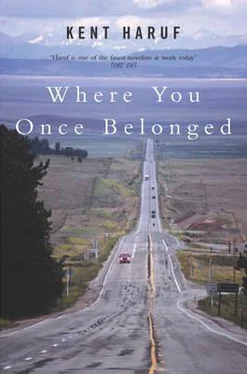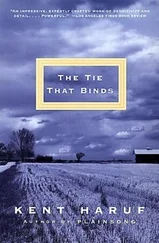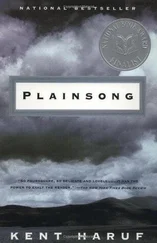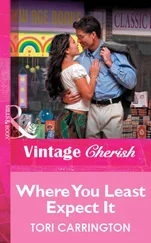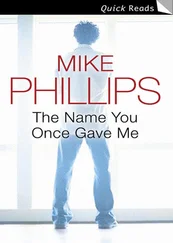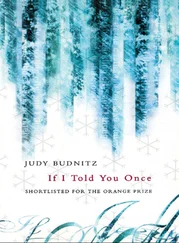Kent Haruf - Where You Once Belonged
Здесь есть возможность читать онлайн «Kent Haruf - Where You Once Belonged» весь текст электронной книги совершенно бесплатно (целиком полную версию без сокращений). В некоторых случаях можно слушать аудио, скачать через торрент в формате fb2 и присутствует краткое содержание. Год выпуска: 2004, Издательство: Pan MacMillan, Жанр: Современная проза, на английском языке. Описание произведения, (предисловие) а так же отзывы посетителей доступны на портале библиотеки ЛибКат.
- Название:Where You Once Belonged
- Автор:
- Издательство:Pan MacMillan
- Жанр:
- Год:2004
- ISBN:нет данных
- Рейтинг книги:5 / 5. Голосов: 1
-
Избранное:Добавить в избранное
- Отзывы:
-
Ваша оценка:
- 100
- 1
- 2
- 3
- 4
- 5
Where You Once Belonged: краткое содержание, описание и аннотация
Предлагаем к чтению аннотацию, описание, краткое содержание или предисловие (зависит от того, что написал сам автор книги «Where You Once Belonged»). Если вы не нашли необходимую информацию о книге — напишите в комментариях, мы постараемся отыскать её.
Where You Once Belonged — читать онлайн бесплатно полную книгу (весь текст) целиком
Ниже представлен текст книги, разбитый по страницам. Система сохранения места последней прочитанной страницы, позволяет с удобством читать онлайн бесплатно книгу «Where You Once Belonged», без необходимости каждый раз заново искать на чём Вы остановились. Поставьте закладку, и сможете в любой момент перейти на страницу, на которой закончили чтение.
Интервал:
Закладка:
It was on one of those Saturday nights. It was in March or April, toward the end of winter, after Jack had been back in Holt for six or seven years.
I had been working late at the Mercury rather than going home to Nora and a silent house. Nora would be reading as usual, wrapped up in an afghan in the front room, and Toni, our little girl, who was two or three then, would already be asleep in her bed upstairs under a white comforter. So I had gone back to the office after supper to try to work on an editorial I was writing for the next week’s issue of the paper, and afterward I had walked up the block to the Holt Tavern on Third and Main streets. I wanted noise and laughter; I wanted to drink a beer among friends before going home again. At the tavern I stood at the bar talking to Bob Sullivan for a while.
Bob Sullivan was a semiretired farmer who had moved to town recently, and at the moment he was seriously disappointed in his granddaughter Amy. She had married a local boy named Jerry Weaver six months earlier. “And the kid wasn’t any good for her,” Sullivan said. “I told her so. Here she’s just a year out of high school and then this Weaver kid talks her into a church wedding before she even has time to turn around good and see what else there might be in the world waiting for her.”
“How old is she?” I said.
“Nineteen.”
“It’s pretty young to get married.”
“That’s what I mean.” Sullivan said. “But do you think you can tell these kids that?”
“No I don’t.”
“Well you can’t.”
Sullivan ordered another Jack Daniel’s on the rocks. After it was on the bar in front of him he drank half of it at once.
“So,” he said, “after I see she’s going to go through with it, I decided: hell, all right, then, I’ll make it easier on her. I’ll buy her a nice double-wide trailer as a wedding present. And I did. It was brand-new too when I give it to her.”
“That was good of you.”
“Because you don’t think that kid has any money, do you?”
“His family has two or three sections of wheatland. They ought to have some money at least.”
“But do they spend it?”
“I wouldn’t know.”
“They don’t. And now I wish I didn’t either. I’m going to tell you why.”
“I’m still listening.”
“Because,” Bob Sullivan said, “the last time I go out to Amy’s house it was a month ago Sunday afternoon. I sit down at the kitchen table like I usually do and Amy brings me a cup of coffee. And after I’ve litten a cigarette to smoke with the coffee, she looks across the table at me and says: ‘Grandpa,’ she says, ‘I wish you wouldn’t smoke in my house anymore.’ ‘What?’ I say. ‘Grandpa,’ she says, ‘I just would appreciate it if you wouldn’t smoke in my house anymore.’ ‘You would, would you? Well I’ll be damned.’ ‘Because it’s a house rule,’ she says. ‘Is that right?’ I say. ‘Yes,’ she says, ‘it is. Jerry and me made up that rule last week after you was here the last time. I’m sorry, Grandpa.’ ‘So am I,’ I say. ‘And I’m getting sorrier.’ Then do you know what I did?”
“No. But I can guess.”
“I stood up and went outside. That’s what I did. I drove home again mad as hell about it. And I haven’t been back there since. What do you think of that?”
“It sounds pretty sudden to me.”
“That’s what I think. Because I’d already taken out my lighter and litten my cigarette. It wouldn’t be so bad if she had just told me before I’d already litten. But she never.”
“She’ll probably get over it,” I said.
“I don’t know. It’s been more than a month.”
“Give it awhile longer.”
“Sure. But do you know what, Pat?”
“No.”
“Do you know what the damn hell of it is?”
“No I don’t.”
“I miss her. That’s what the damn hell of it is. I miss Amy. I miss going out there, talking to her and drinking coffee with her. And tomorrow it’s going to be Sunday afternoon all over again too.”
Then he looked at me and I shook my head. He drank the rest of his Jack Daniel’s and afterward he sat there at the bar stirring the ice in the glass with his finger. Finally he stood up very slowly and went back to the rest room.
While he was gone I moved farther down the bar. I ordered another beer. Toward the back, sitting at a table by herself, I saw Wanda Jo Evans. She waved at me and I walked back to her table and sat down in the chair next to her. Jack Burdette was standing over by the pool table talking to a circle of men, heavy, solid, massive, an imposing presence, standing there talking, gesturing with a full glass of liquor in one hand and a cigarette in the other, his face far above those other faces, florid now and animated, his eyes a little bit shiny. The men were all watching him while he talked.
“You’re looking lovely tonight, Wanda Jo,” I said. “Is that a new dress?”
“Do you like it?”
“Yes. You look terrific.” And she did of course. The dress she was wearing was a pale green color, which set off her hair, and it was made of a soft material which fell smoothly from the shoulder down over her breasts and hips. There were little buttons down the front of it.
She smiled. “You don’t look so bad yourself.”
“I’m losing my hair,” I said. “Look at this.” I slapped myself on the forehead where my hairline had been. “If I don’t quit this pretty soon I’m going to be a walking cue ball.”
“Jack’s losing his hair too.”
“But he’s got more to lose. He could transplant some off his chest and nobody’d even notice.”
“I’d notice,” she said. Then she laughed. She’d drunk enough to be amused by the thought of that. “He is awfully hairy, isn’t he?”
“He’s the missing link,” I said.
We looked over at Jack where he stood beside the pool table. He was telling another joke or retelling one of his stories, and the men standing around him were waiting for the punch line. Jack had their complete attention. A barroom and a male audience were Jack’s element.
Wanda Jo turned back and began to twist a straw between her fingers. “I saw your wife and little girl on Main Street yesterday,” she said.
“Did you?”
“Yes. What’s your little girl’s name again?”
“Toni.”
“Toni. Well she’s cute. And she had the prettiest little dress on. I wanted to hug her.”
“She’s got some of her mother’s good looks at least. But she’s stubborn as hell. Maybe you could come over and help us out at nap time.”
“I would,” she said. “Just let me know.” She was serious. “Anyway I think you’re lucky.”
“Oh? I don’t know,” I said. Because I didn’t think of myself as being lucky. Not in marriage anyway. But of course Wanda Jo meant that I was lucky being a father. I would have agreed with her about that. At least at the time I would have. Toni was what kept Nora and me together.
“But I hope to have children myself,” Wanda Jo said.
“Do you?” I said.
“Don’t you think I’d make a good mother?”
“Of course.”
“I think I would. Only it’s getting so late. Sometimes I wish Jack would just hurry up and make up his mind. He says he will but then he keeps putting it off.”
“That sounds like him.”
“Did you know we were going to be married last summer?”
“No.”
“We were. I bought a dress and wedding invitations. But Jack decided he wasn’t ready yet.”
“I don’t suppose he was.”
Wanda Jo stopped twisting the straw and looked at me. “Of course he will eventually. I have to think that. Otherwise, what else is all this for?”
“He’ll come around. He’s just not done playing yet,” I said. Then I took her hand; I squeezed it and she smiled. But the smile didn’t last long; it didn’t change anything in her eyes. Afterward she looked unhappy again.
Читать дальшеИнтервал:
Закладка:
Похожие книги на «Where You Once Belonged»
Представляем Вашему вниманию похожие книги на «Where You Once Belonged» списком для выбора. Мы отобрали схожую по названию и смыслу литературу в надежде предоставить читателям больше вариантов отыскать новые, интересные, ещё непрочитанные произведения.
Обсуждение, отзывы о книге «Where You Once Belonged» и просто собственные мнения читателей. Оставьте ваши комментарии, напишите, что Вы думаете о произведении, его смысле или главных героях. Укажите что конкретно понравилось, а что нет, и почему Вы так считаете.
